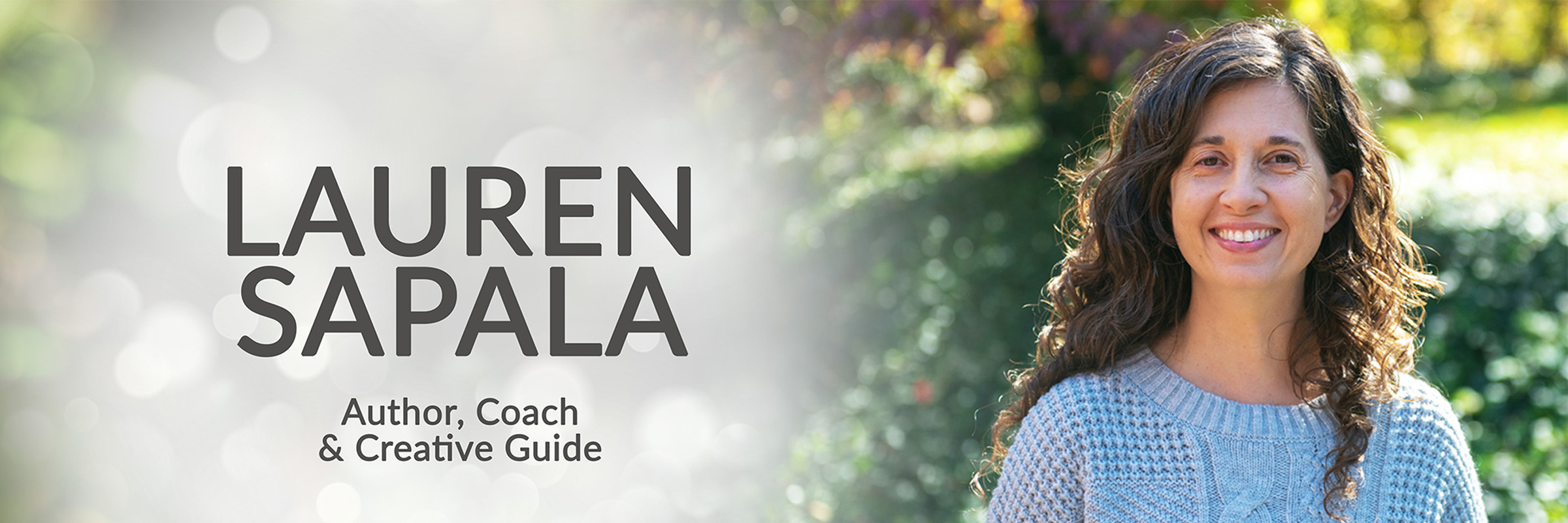
I was working with a new client who had come to me because she said she hated her writing life. As I sat with her on Zoom and asked her questions about her writing, I watched her face change as she described how she used to feel about writing when she was much younger, and how she felt about it now.
She looked troubled, and sad. And also confused. Why was writing so hard for her now? she asked. She didn’t understand why it felt like pulling teeth to sit down and crank out 500 words. Writing had always been something she loved. She didn’t understand why it now filled her with so much dread.
As we dug deeper into the layers of her problems with writing, the truth became more and more clear.
Somewhere along the way, my new client had tied her writing to her self-worth, and that had killed any joy she had in her creative life as a writer.
As a writing coach who specializes in working with writers who suffer from severe procrastination and perfectionism, I see this problem a lot. I see it most often in women writers who are over 30, Highly Sensitive, intuitive, and empathic. These types of writers also tend to be intellectually gifted, and that’s one of the reasons this is such a tough problem for them, because it’s not the kind of problem you can think your way through in order to find a solution. In fact, the harder you try to think about what’s wrong, the more lost you become.
Almost all of the time, these types of writers had a parent who gave them the message—loud and clear—that in order to be loved, they needed to be a high achiever. Many of my clients report to me that they received extremely high grades in school, teachers loved them, and they often did well on tests and won awards. It’s also common for these types of writers to work with writing in some capacity in regards to their career. Much of the time they are freelancers, or copywriters, or ghostwriters, and they do quite well at it. It’s when they sit down to work on their own stuff—their own novel, or memoir, or essay—in order to express themselves as a writer, that they run into problems.
These problems are extremely painful. Many of these writers have told me that it feels like being “artistically constipated.” Others say they sit in front of the blank page or screen and nothing comes, until finally they push out a few words, and then when they reread them, they immediately hate everything they wrote. Writing feels hard, slow, torturous, and they feel full of resistance to the process the entire time it’s happening.
On top of this, there seems to be no name for what they’re going through. When they try seeking help for it by researching the problem online, all they find are articles about how to conquer procrastination, how to be more productive, how to smash through writer’s block. But that’s not it, they tell me, these articles they’ve read are circling the problem, sort of, but none of them are hitting the nail on the head. None of them describe the shame and the guilt that seem to be such a huge part of the difficulty they’re experiencing. None of them talk about that constipated feeling of being creatively blocked, or the frustration and despair over it ever getting any better.
When I sit down with one of these writers, I start asking questions, and as we go through the questions together, I start describing their symptoms and the root cause of those symptoms. It must be a little bit how doctors feel when they’ve finally helped someone pinpoint some mysterious disease or disorder, because almost always I see the client’s eyes light up. “Yes!” they exclaim. “Oh my god yes! How did you know that? You must be magic!”
Well, I’m not magic, but I am a writing coach who has worked with literally hundreds of writers who have struggled with the exact same problem. There IS a pattern. This IS a thing. And there is a way to move past it.
What’s going on is that—as mentioned—from an early age the writer was taught to equate their self-worth with their achievements. Almost always, the writer is also creatively and intellectually gifted. So, making good grades and winning the award for best essay is something they can do, and it’s something that gets them attention and approval. So, they start doing these things all the time. They start defining who they are through these things. They start piling expectations, emotional needs for love and connection, and definition of identity, all on their writing.
That’s a lot of stuff to put on your writing.
This usually works, for a little while. It works reasonably well throughout high school and college, because those environments encourage people to engage in the pattern of using achievements to earn self-worth, and if the person pursues a career in academia, then they can usually keep it up for many more years, because the academic world also uses that pattern. It will also work longer if the writer follows any sort of career path that takes them into an environment that is defined by competition, status, and ego, like law school or a career in law, medical school and the medical profession, the corporate world, etc. These “worlds” are realities where people are defined by their achievements and categorized as being superior or inferior to others. So, the writer who grew up in a home where the same rules were in place will feel like this kind of reality is familiar and safe.
This pattern and way of being can work for writers for a long time, until it doesn’t anymore. When it stops working, it usually stops working abruptly. Suddenly, the writer just can’t make themselves write. Out of nowhere, the writer feels tons of dread and resistance, and it’s not something they can push through. That’s usually how they know something is really wrong, because before they were always able to just push themselves harder. These types of writers are almost always very motivated individuals who have always been very good at forcing themselves to do things that they don’t really want to do. Now, when it seems their creativity has ground to a halt and nothing they do–absolutely nothing—is of any help whatsoever, they find themselves confused, and scared. What in the world is going on?
The truth is that this problem did not “suddenly” happen to the writer, it had been growing inside them all along. In fact, if they hadn’t been so single-mindedly focused on winning the next achievement and crossing off the next item on their to-do list, they would have noticed somewhere along the way that their body has been screaming at them to stop, slow down, back off, cease and desist from engaging in this horribly destructive life pattern any longer. But because these types of writers tend to live solely in their head, they didn’t notice. They thought the stomach problems would go away on their own, and the bouts of anxiety were just something that a lot of people go through. They thought the thyroid problems they have just needed medication, and the skin condition they’re dealing with needed an ointment.
They thought the fact that they constantly feel like an imposter and a fraud, and that someday everyone is going to find out how worthless they are and that they’ve been faking their way through this entire time was just something that was wrong with them. This is very common for these types of writers too, they usually think everything is their fault.
However, it is not their fault, and it has never been their fault. The real problem is that this writer was taught to earn their self-worth through achievement. They were fed the lie that in order to be loved they have to be good, better, the best, perfect. They have believed for years that they are not allowed to be messy or flawed, and so they make sure that their writing—even when it’s in first draft form—isn’t that way either. Because that’s another thing these writers do (which is why it takes them so long to write 500 words). They wait for the perfect words to come before they write them down and they sit for long periods of time crafting the perfect sentence in their head before committing it to paper.
Everything feels very final for these types of writers, and everything feels very high stakes. Writing is not a “fun” activity, at least, not anymore. It’s not a place to experiment or play. It’s not something you can fool around with, just to see what happens. And how can it be, when your entire self-worth is riding on it? When you being loved and accepted—or you being unloved and rejected—are the possible consequences sitting on top of your writing, how in the world can you ever let go and have fun with it again?
What these writers need is not better time management strategies or more ways to be productive and smash through writer’s block. Not only is that kind of advice a complete joke for anyone who is dealing with severe procrastination and perfectionism, it’s also something that will exacerbate the condition, because it’s still feeding into the writer’s dysfunction. Those types of strategies are still telling the writer that something is wrong and needs to be fixed. It fuels their addiction to constant self-improvement and self-judgment. What is really needed, instead, is healing. The writer needs to move out of the mental space—the thinking, problem-solving, judging, critical part of themselves—and into the heart. Once they are rooted in the heart space and able to negotiate from that place, then they are ready to jump into the real healing process by working with the body.
The body is where all the old energy—the imprints, the programming, the belief systems, the PTSD, the nervous system reactions—are stored, and the body is where the healing needs to take place first. Once we establish that strong connection to the body, and once we are listening to the messages it is sending us and honoring what it needs, then we can start crafting a unique writing practice that actually works, one on the level of the body and the mind.
Working with perfectionism in this way is a longer process, but it addresses the root of the problem and heals the conflict at the source. There are definite, small steps you can start to take to move in this direction, but the most important thing you need is patience, and the willingness to accept where you are, right now, without trying to push yourself to be “better” or different.
Perfectionism can get better over time, but we must always remember that it’s something to be healed, not fixed. Once we approach it as a healing process, everything else will evolve from that point.
Lauren Sapala is the author of The INFJ Writer, The INFJ Revolution. She is also currently offering a free copy of her book on creative marketing for INFJ and INFP writers to anyone who signs up for her newsletter. SIGN UP HERE to get your free copy of Firefly Magic: Heart Powered Marketing for Highly Sensitive Writers.



